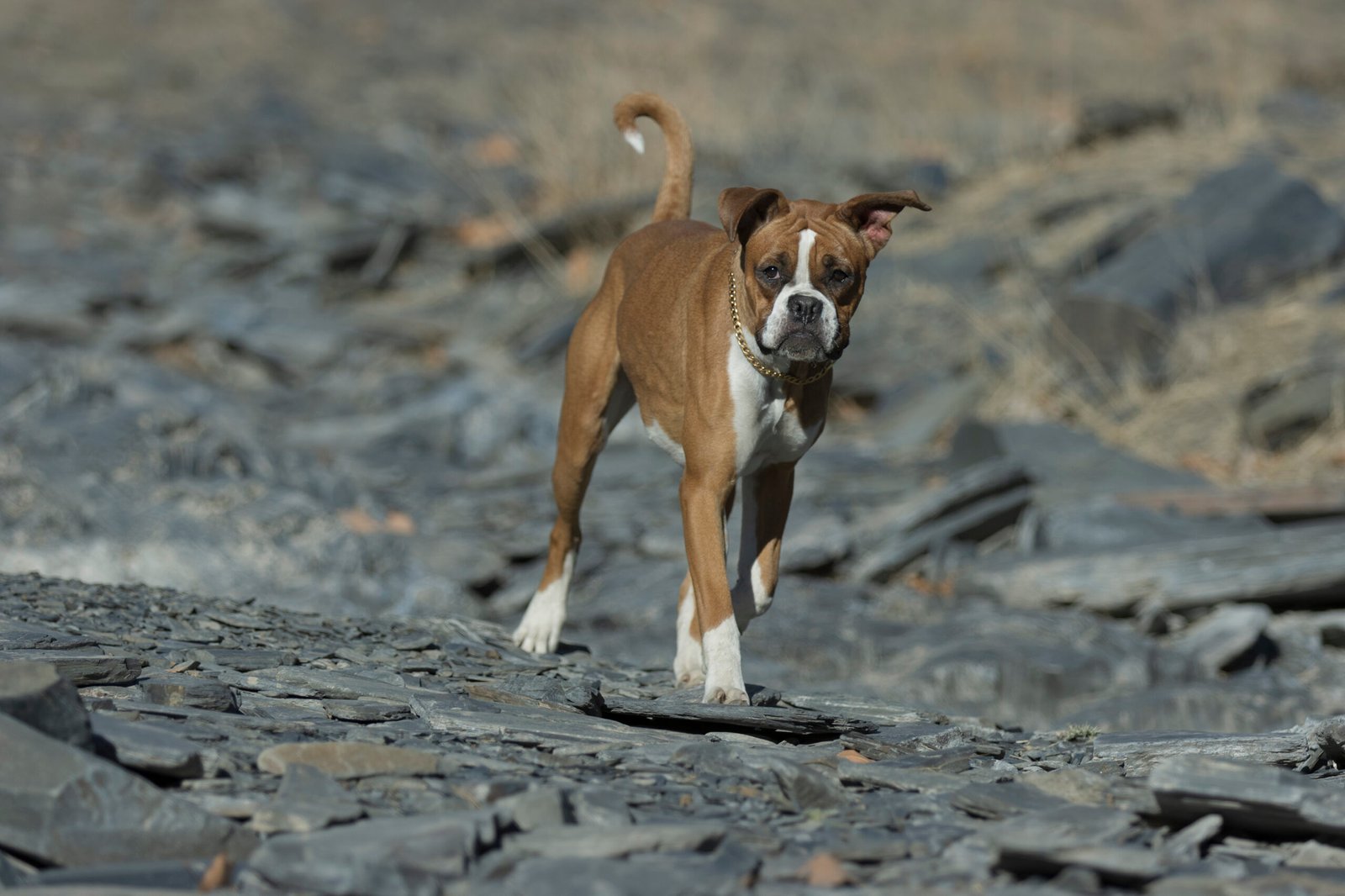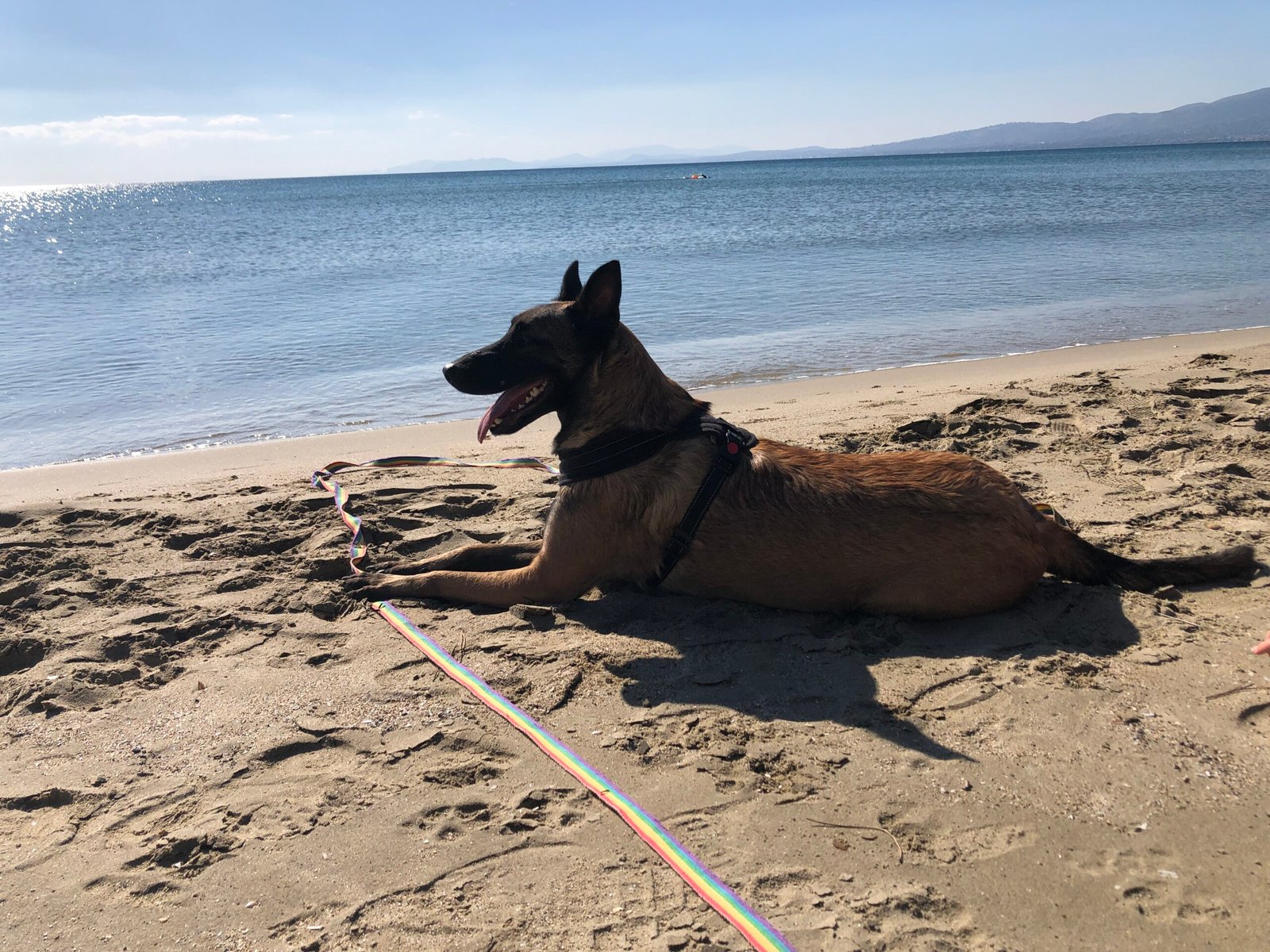When it comes to home security, few methods are as effective as having a loyal guard dog by your side. Whether you’re concerned about intruders or just want a faithful companion, guard dogs can offer both protection and friendship. In this article, we’ll explore 15 of the best guard dog breeds and provide insights on how to train them effectively. These breeds are known for their loyalty, intelligence, and courage, making them excellent protectors for you and your family.
Rottweilers
Rottweilers have long been known for their protective instincts and powerful build. These dogs are incredibly loyal and can be very affectionate with their families. Training a Rottweiler requires patience and consistency, as they respond best to firm but loving guidance. Socialization from an early age is crucial to ensure they grow up well-adjusted and friendly. Basic obedience training is essential, and positive reinforcement methods work best. They have a natural instinct to protect, so proper training will help channel this trait in the right direction. Remember, a well-trained Rottweiler can be both a formidable guard dog and a gentle giant with its loved ones.
Dobermans
Dobermans are renowned for their sleek appearance and sharp intelligence. These dogs are quick learners and can be trained to perform various tasks, making them excellent guard dogs. Early socialization is key to ensuring they are comfortable around different people and environments. Training should focus on obedience and impulse control, using positive reinforcement techniques. While they are naturally protective, building a strong bond with your Doberman will enhance their loyalty and effectiveness as a guard dog. Their natural agility and alertness make them outstanding protectors and companions.
German Shepherds
German Shepherds are perhaps one of the most versatile dog breeds, known for their intelligence and adaptability. They are frequently used in police and military work due to their keen ability to learn commands and execute them flawlessly. Training a German Shepherd requires consistency and mental stimulation, as they thrive on tasks that challenge their intellect. Socialization is important to prevent over-guarding tendencies, and obedience training should start early. With the right guidance, a German Shepherd can be a reliable and protective family member.
Bullmastiffs
Bullmastiffs are known for their imposing stature and calm demeanor. Despite their size, they are gentle giants and are particularly good with children. Training a Bullmastiff involves teaching basic obedience and ensuring they are well-socialized. Early training helps them understand their role as protectors without becoming overly aggressive. These dogs respond well to positive reinforcement techniques and enjoy activities that engage both their body and mind. Their natural instinct is to protect their family, making them excellent guard dogs.
Boxers

Boxers are energetic, playful, and incredibly loyal, making them great companions and protectors. Training a Boxer involves channeling their energy into productive activities and ensuring they have plenty of exercise. Early socialization helps them become well-rounded dogs, while obedience training teaches them to follow commands reliably. Boxers respond well to positive reinforcement and enjoy interactive training sessions. With their playful nature and protective instincts, they make excellent guard dogs for active families.
Great Danes
Great Danes may be known for their massive size, but they are also incredibly gentle and affectionate. Training a Great Dane involves teaching basic obedience and ensuring they are well-socialized. Their size can be intimidating, which makes them effective deterrents, but their gentle nature means they are also great family pets. Early training helps them learn how to interact appropriately with people and other animals. Positive reinforcement methods are effective, and consistent training will help them become reliable protectors and loving companions.
Akitas
Akitas are known for their loyalty and strong protective instincts. These dogs are naturally wary of strangers, making them excellent guard dogs. Training an Akita involves establishing a strong bond with them and providing consistent, positive reinforcement. Early socialization is crucial to ensure they are well-adjusted and comfortable in various environments. Obedience training should focus on impulse control and building a trusting relationship. With the right guidance, Akitas can be both devoted companions and vigilant protectors.
Belgian Malinois

Belgian Malinois are highly intelligent and agile, often used in military and police work due to their exceptional skills. Training a Belgian Malinois requires mental and physical stimulation, as they thrive on challenging tasks. Early socialization helps them become well-rounded dogs, while obedience training should focus on teaching them to follow commands reliably. Positive reinforcement methods work best, and consistent training will help them develop into loyal and effective guard dogs. Their natural agility and intelligence make them outstanding protectors.
Chow Chows
Chow Chows are known for their distinctive appearance and independent nature. While they may not be as outgoing as other breeds, they are fiercely loyal to their families. Training a Chow Chow involves establishing a strong bond and providing consistent guidance. Early socialization is important to prevent over-guarding tendencies, and obedience training should focus on impulse control. Positive reinforcement techniques work well, and with the right training, Chow Chows can be both protective and loving companions.
Rhodesian Ridgebacks
Rhodesian Ridgebacks are known for their bravery and strong protective instincts. These dogs are naturally wary of strangers, making them excellent guard dogs. Training a Rhodesian Ridgeback involves providing consistent, positive reinforcement and early socialization. Obedience training should focus on impulse control and building a trusting relationship. With the right guidance, Rhodesian Ridgebacks can be both devoted companions and vigilant protectors.
Staffordshire Bull Terriers
Staffordshire Bull Terriers are known for their loyalty and affectionate nature. While they may not be as intimidating as other breeds, they are fiercely protective of their families. Training a Staffordshire Bull Terrier involves establishing a strong bond and providing consistent guidance. Early socialization is important to prevent over-guarding tendencies, and obedience training should focus on impulse control. Positive reinforcement techniques work well, and with the right training, Staffordshire Bull Terriers can be both protective and loving companions.
Giant Schnauzers
Giant Schnauzers are known for their alertness and protective instincts. These dogs are naturally wary of strangers, making them excellent guard dogs. Training a Giant Schnauzer involves providing consistent, positive reinforcement and early socialization. Obedience training should focus on impulse control and building a trusting relationship. With the right guidance, Giant Schnauzers can be both devoted companions and vigilant protectors.
American Bulldogs
American Bulldogs are known for their bravery and strong protective instincts. These dogs are naturally wary of strangers, making them excellent guard dogs. Training an American Bulldog involves providing consistent, positive reinforcement and early socialization. Obedience training should focus on impulse control and building a trusting relationship. With the right guidance, American Bulldogs can be both devoted companions and vigilant protectors.
Dogo Argentinos
Dogo Argentinos are known for their courage and determination. These dogs are naturally protective and make excellent guard dogs. Training a Dogo Argentino involves providing consistent, positive reinforcement and early socialization. Obedience training should focus on impulse control and building a trusting relationship. With the right guidance, Dogo Argentinos can be both devoted companions and vigilant protectors.
Saint Bernards
Saint Bernards may be known for their massive size, but they are also incredibly gentle and affectionate. Training a Saint Bernard involves teaching basic obedience and ensuring they are well-socialized. Their size can be intimidating, which makes them effective deterrents, but their gentle nature means they are also great family pets. Early training helps them learn how to interact appropriately with people and other animals. Positive reinforcement methods are effective, and consistent training will help them become reliable protectors and loving companions.





